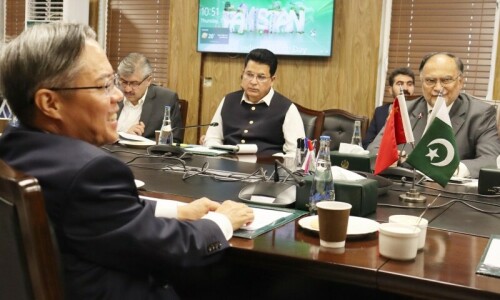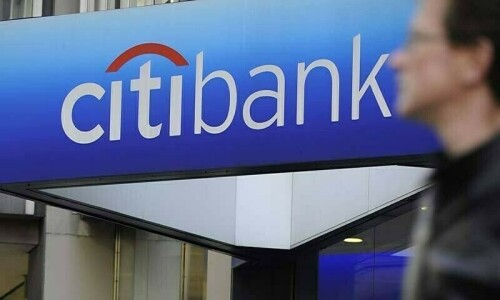ISLAMABAD, July 21: Pakistan has diverted its global trade worth $4.132 billion towards India following inclusion of 438 new importable items in the positive list during the past 10 months, officials told Dawn on Monday.
The expansion in the tradable list came in the backdrop of the composite dialogue launched in 2004, the forum which India successfully used for the benefits of their businessmen, while no progress has been made on the thorny issues including Kashmir, water barrages etc.
Commerce and Defence Minister Ahmad Mukhtar said Pakistan was in the process of “gradually liberalising” trade with India. “Composite dialogue process, especially on economic and commercial cooperation, has been instrumental in addressing the bilateral issues,” he added.
Official figures available with Dawn showed that Pakistan’s tradable list with India had 591 items in 1997, but it has been enhanced to 1,938 items in 2008. The government added 302 items to the list in October 2007 and 136 items in July 2008.
This expansion has widened Pakistan’s trade deficit with India to $893 million in 2006-07 from $73.736 million in 1999-2000. With the substantial expansion in the tradable list, the deficit is likely to reach $1.5 billion in 2007-08, when the final figures are finalised.
The figures for July-March 2007-08 showed Pakistan’s trade deficit with India stood at $1.095 billion.
Pakistan exported $200 million worth commodities to India in the July-March period of 2007-08, while the value of imported goods reached $1,295 million during the period under review.
Pakistan’s exports to India are stagnated between $200 million to $400 million despite the fact that New Delhi has granted MFN status to Islamabad.
A diplomatic source said, “India is satisfied with the constant expansion in the tradable items list. Whatever they want they get from Islamabad.”
Indian side never stressed for the MFN status as they were aware of the fact that the expansion in the positive list would serve their interest.
“MFN status has become just a political issue, which will lose its importance with the passage of time as Pakistan would keep on expanding the positive list to meet their demand,” he said.
Indians did not challenge the issue at WTO because they knew that they would lose the case.
Meanwhile, in a significant shift of policy, Pakistan also unilaterally announced measures in the trade policy to encourage Indian investment in manufacturing of CNG buses.
The government had already withdrawn the 15 per cent duty on the import of CNG buses in the budget 2008-09.
An official in the Board of Investment on condition of anonymity told Dawn that there was no law, which could bar Indian investment in Pakistan.
Pakistan has a liberal investment policy, but the official said generally both countries discouraged bilateral investments. It is not just for CNG buses the Pakistan government is also signalling its readiness to embrace Indian investment in other sectors.
The government has invited at least three Indian companies -- Tata, Reliance and Essar -- to a meeting of potential investors in the power sector to discuss the development of the Thar Coal Power Project. The meeting is due to be held in late July or early August.
Pakistan’s efforts at liberalisation of trade with India appear to be in line with the sentiments voiced by PPP co-chairman Asif Ali Zardari that the new government wanted to improve economic relations and would not allow the differences on Kashmir to come in its way.














































Dear visitor, the comments section is undergoing an overhaul and will return soon.